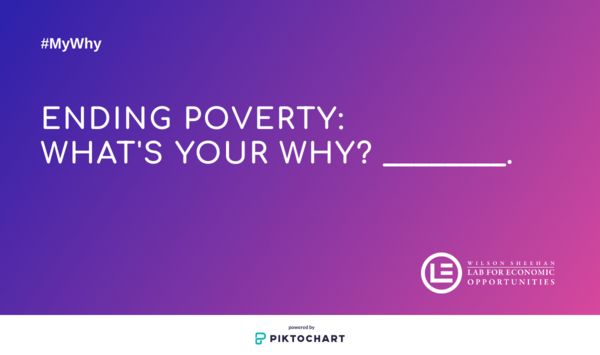
If you’ve met anyone from LEO, you’ve invariably been asked about your “why” – the experience that inspired your life commitment, the memory you cling to when keeping that commitment seems too hard, the spark that turned into the passion that you pour yourself into.
Defining a "why" is deeply intrinsic to the human experience, and not insignificant in its challenge.
Viktor Frankl, an Austrian psychiatrist who was interned in Auschwitz during the Holocaust, was a champion of “defining the why.” Frankl decided to use the horrific circumstances surrounding him as a means for defining the "meaning of life." What does a person have to live for once everything has been stripped away? Can there be meaning in suffering? For the economists out there, does imagining a brighter future have any effect on a prisoner's capacity for survival? In his seminal work Man's Search for Meaning, Frankl captures his perceived answers to these difficult questions:
A man (or woman) who becomes conscious of the responsibility he bears toward a human being who affectionately waits for him, or to an unfinished work, will never be able to throw away his life. He knows the 'why' for his existence, and will be able to bear almost any 'how.'
Frankl continues:
By declaring that man is responsible and must actualize the potential meaning of his life, I wish to stress that the true meaning of life is to be discovered in the world rather than within man or his own psyche, as though it were a closed system. I have termed this constitutive characteristic 'the self-transcendence of human existence.' It denotes the fact that being human always points, and is directed, to something or someone, other than oneself– be it a meaning to fulfill or another human being to encounter. The more one forgets himself—by giving himself to a cause to serve or another person to love—the more human he is and the more he actualizes himself. What is called self-actualization is not an attainable aim at all, for the simple reason that the more one would strive for it, the more he would miss it. In other words, self-actualization is possible only as a side-effect of self-transcendence.
One finds oneself through the constant act of giving oneself. In the service sphere, these are beautiful words. And, how amazing is it that all of our individual "whys" combine and become the formidable "why" of the fight to end poverty. There's our strength.
What’s your “why?”